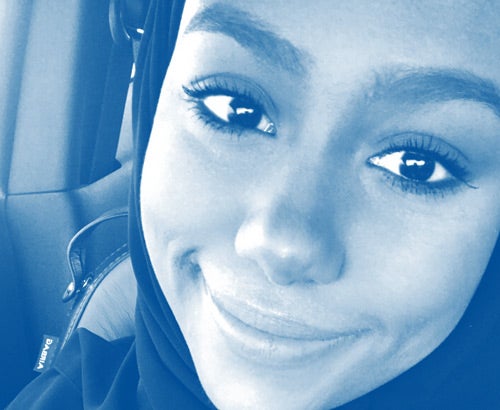Nouf’s Blog

In Gulf countries, globalization brings problems with migrant workers
Dated: Wednesday, July 18, 2018
Author: Nouf AlJahdami
The countries of the Middle East historically have not been plagued by civil disruptions due to globalization, such as labour riots and corporate robbery. As these countries open up to trade, business, immigration and other aspects of globalization, security is becoming a key issue. Yet many of the civil disruptions go largely unreported, including conflicts over overseas migrants working as domestic labourers.
A lot of the time, people who come to work in the Middle East have to deal with a reality different from what they had expected. Someone who traveled to work as a waitress could end up as a housekeeper or a nanny. The news website Arabnet reported in 2013 that 30 per cent of the cases of migrant domestic labourers and violence in Arab countries involved situations where the worker arrived expecting one kind of job but actually got another kind. Some get wages lower than what was contracted. Others face contract terminations with no arrangements for accommodation included in the mediation process. Those who suffer are people coming from developing countries to seek better wages to help their families. These conflicts are overlooked because of the stigmatization of domestic labourers and the lengthy legal procedures involved in resolutions.
A case I am currently working on involves a foreign domestic worker who got into a fight in February with a fellow worker in the housing unit that a domestic labour company provided them in Sharjah, United Arab Emirates (UAE). They were sitting in a common room watching TV and having a casual conversation when a disagreement arose, and one of the women tossed a mug at the other, hitting her on the back of the head. She ended up needing stitches. The labour company’s management encouraged her not to go to the hospital because the company is held legally accountable for any violent acts. But the woman did go for treatment and while she was in the hospital, the police started asking questions. In response, the spiteful labour company presented her with a termination letter. That came with no clear process to send her back home.
After helping the woman file a complaint with the police, the Ministry of Labor helped her with her medical fees and the legal process. The Ministry also ensured that the company followed proper policies of termination. When the company head was asked to attend an arbitration session and he did not show up, the Ministry, which takes a non-tolerant approach on issues of violence and domestic workers, fined the company and put its license under investigation. The case is still ongoing; it takes up to seven months to settle such matters.
My group helped the victim with paperwork and court procedures and found her a temporary job until the final hearing. The worker who threw the mug is under police investigation.
And this is a fortunate case. Not all such cases go to the police; without anyone to help them, many domestic workers succumb to the demands of the labour companies out of fear of losing their jobs, so a lot of the violence goes unreported.
There have been recent tensions between the Philippines and Kuwait on the issue of employers’ violence against domestic labourers. Although Kuwait does have comprehensive policies protecting domestic labourers, they are not properly enforced.
In UAE, stories of conflict are not so unusual because a lot of people are accustomed to using the domestic labourers market for their own benefit. I think there should be more government initiatives on this issue, but UAE does not shy away from doing better. One of the ways in which Abu Dhabi and Dubai police have sought a solution is by better communicating their policies to the migrant domestic labourers, using the Tagalog language of Philippines at customer centres and in digital apps, media advertisements and documents.
Nouf AlJahdami from Dubai, United Arab Emirates, is a humanist and a scholar of security and global studies with an emphasis on the media. She contributes visual and literary work for ethical and developmental causes in the Middle East and North Africa. She believes that change happens once we question ideologies in our society.